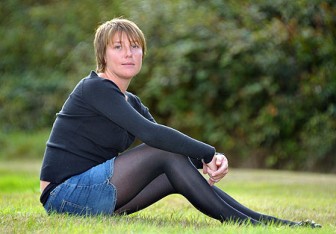This was confirmed by Head of the Criminal Investigation Department (CID) Assistant Commissioner Seelall Persaud. Speaking with Stabroek News on Thursday last, Persaud explained that when Warner was arrested a field test had indicated that the substance discovered in her possession was cocaine.
During an analysis conducted at a later date at the police’s lab, Persaud explained, the same substance tested negative for cocaine. It was based on this latter test result that the charge against Warner was dismissed.

Several months after her release by Guyanese authorities, Warner pleaded guilty (on January 18) at the Basildon Crown Court to supplying heroin in Southend. She is currently on bail and will be sentenced tomorrow. Warner had told British publication Echo that she was never provided with a charge sheet or analysis report by Guyanese police.
The Crime Chief told this newspaper that during her incarceration here Warner had admitted that she was a drug user but police had no evidence with which to convict her for trafficking.
The 31-year-old British citizen, who was born in Spain, entered Guyana on July 18, 2009. It was during her scheduled departure nine days later that she was hauled in by anti-drug officials and searched.
A source has since provided Stabroek News with the available recorded details of Warner’s case. Warner was making her way through immigration on July 27, 2009 at the Cheddi Jagan International Airport (CJIA) when she was stopped after sniffer dog “Organ” singled her out. Warner had checked in on a LIAT flight bound for Barbados.
Anti-drug officials pulled Warner aside and requested her luggage which had already been checked in as well. A search was subsequently conducted and a substance suspected to be cocaine saturated in two bottles (shampoo and hair gel) was discovered. The items were seized and Warner was arrested.
Two days after being arrested Warner appeared at the Georgetown Magistrates’ Court where she was charged with possession of narcotics for the purpose of trafficking. The charge was read to Warner by Magistrate Hazel Octive-Hamilton and she pleaded not guilty.
Warner was remanded to prison and Magistrate Hamilton transferred the matter to the Providence Magistrate’s Court for August 12, 2009 for report and fixture of trial.
It is unclear what happened to Warner’s case from the date it was set for report and fixture to its dismissal. This newspaper has been unable to determine the exact date when the case against Warner was dismissed. Police documents, which the source used to provide this newspaper with information, did not state the date of the case’s dismissal.
In October, 2009, Warner’s story ‘I thought I’d die inside filthy Guyana prison’ a UK Mirror exclusive by Phillipa Cherryson, was published. In the report, written in diarised form, Warner, then 30 years old, said she had been wrongfully accused of smuggling drugs and charged. The Mirror said it had contacted a Foreign Office spokeswoman who confirmed that Warner was released from detention in Guyana on August 31 without charge.
At the time of her release, the source said, Warner’s trial would have most likely been in progress and would have been dismissed due to lack of evidence after the substance tested negative for cocaine.
The source, supporting the Crime Chief’s explanation, told this newspaper that the substance found in the shampoo and hair gel containers had tested positive for cocaine during a field analysis. The substance was then sent to the lab at CID Headquarters, Eve Leary for further analysis and this time tested negative for cocaine.
“This is strange,” the source noted. “Seldom is field testing wrong. However, factors like the improper use of testing instruments or a breach in the necessary procedure demanded during field testing may have caused this.”
Was a positive field test enough ground on which to charge Warner with drug trafficking? While not directly asked this question Persaud said that after the field test showed positive for cocaine Warner was charged before the 72-hour period, within which they are allowed to legally hold a suspect, could elapse.





